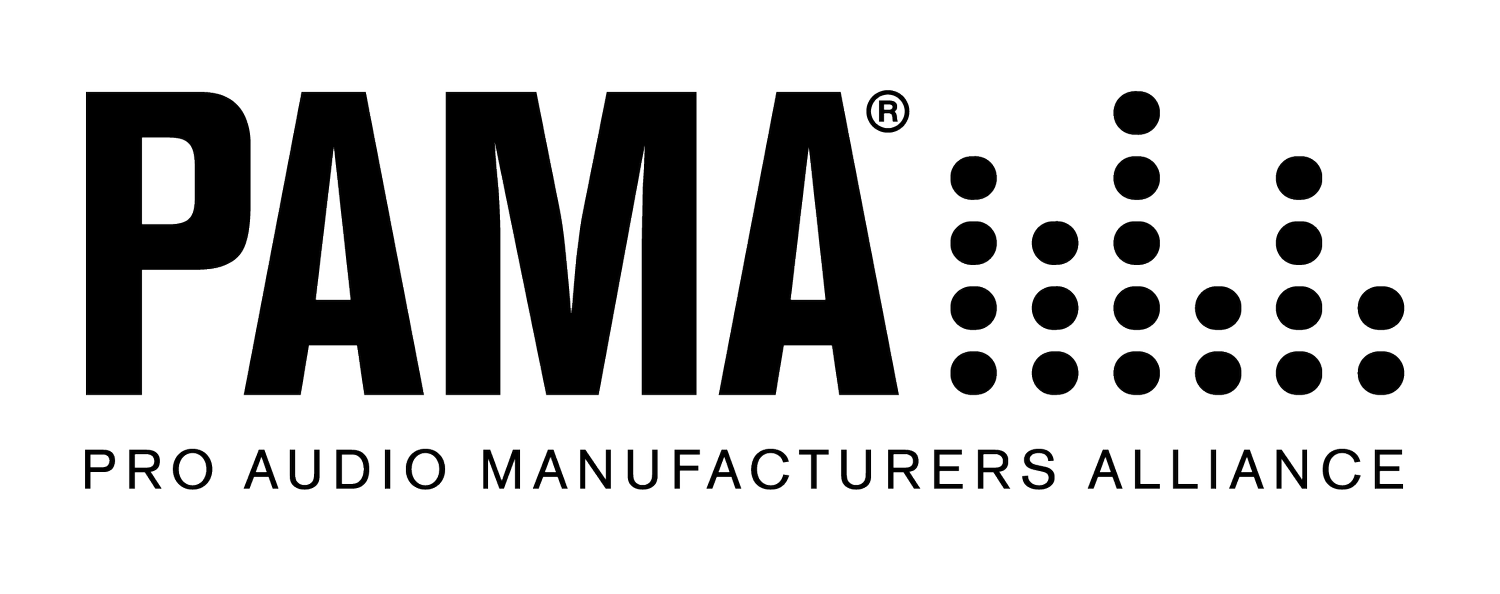Hearing Rocks | Protect & Preserve Your Hearing
A Resource Hub for Audio Professionals
The Professional Audio Manufacturers Alliance (PAMA) is on a mission to help protect and preserve the most critical tool for audio professionals: their hearing.
Through our "Hearing Rocks" initiative, we’re championing awareness, education, and actionable solutions to ensure the longevity and well-being of our industry.
Hearing Loss: Just the Facts
Professional musicians are nearly four times as likely to develop noise-induced hearing loss (NIHL) as the general public.
They are also more likely to experience tinnitus, or ringing in the ears.
Hearing damage can affect everyone in the music industry, including backstage crew, front of the house staff, as well as bartenders, waiters, and other staff.
Hearing loss can develop from repeated exposure to loud sounds, according to the British Medical Journal.
Over time, loud sound will irreparably damage the sensory hair cells of the inner ear that send sound information to the brain to interpret.
There is also evidence that loud sound also disrupts how cells transmit information via synapses, leading to what is termed “hidden hearing loss” because it’s not easily detected by traditional hearing tests.
What Does Hearing Loss Sound Like?
The National Institute for Occupational Safety and Health (NIOSH) has developed a hearing loss simulator to demonstrate the effects of noise exposure on hearing without experiencing an actual noise-induced hearing loss.
How Do I Know If I Have Hearing Loss?
According to the American Academy of Audiology, common signs of hearing loss include:
Asking people to repeat what they say.
Feeling like others are always mumbling or not speaking clearly.
Difficulty hearing and understanding speech in noisy environments.
Missing words or phrases on the telephone.
Turning the volume up on the television or radio louder than normal.
How Can I Help Prevent Hearing Loss?
MusiCares and Tuned have partnered to provide the following ways to help those in the music industry protect their hearing:
Know the warning signs.
Care for existing hearing issues.
Use recommended earplugs.
Don’t overdose on sound.
See a music audiologist for annual checkups.
Hearing health contributes to career health, so make sure you take care of your hearing. Using a sound level meter app to track decibels and using in-ear monitors onstage and during rehearsals can also help.
MusiCares has partnered with Tuned to offer the music community access to highly specialized and world-renowned Music Audiologists. These audiologists bring years of experience focusing on the unique needs of music industry professionals in hearing loss prevention, amplification, tinnitus and disorder management, in-ear monitors, and more. Additional info is here: MusiCares x TUNED National Audiology Services.
What Can Venues and Live Events Do To Help With Hearing Health?
The World Health Organization has developed a standard for safe listening venues and events.
The Standard comprises six “features” which, when implemented, allow audience members around the world to enjoy amplified music with protection of their hearing, while also preserving the integrity of the artistic experience.
What Are Audio Manufacturers Doing?
PAMA members are committed to hearing health by designing and manufacturing products that meet or exceed all government regulations related to hearing health standards. PAMA is also working to provide additional education to help everyone in the audio industry with hearing health.
Additional Resources
If you have a resource link to be listed, contact us!
Testimonials
“You should always protect your hearing. Your ears are your number one tool for mixing!””
“Understanding that we only have one set of ears impacts every aspect of our lives, both in the short term and the long term. As the quality of hearing protection has improved, it’s easier than ever to preserve whatever hearing we have across different environments.””
“I love experiencing the world through sound. Protecting and preserving my hearing will help me continue to do what I love throughout my life.””
“We cannot take our hearing for granted. We have to take good care and protect ourselves. Our ears need rest - using earplugs is a simple way to accomplish that.””
“I’ve been a professional drummer for over 45 years and started using hearing protection in the mid 80’s. As in-ear monitor technology advanced I was an immediate endorser of the idea. Hearing protection is mandatory.””
Will you support our efforts? Contact us to sign on.
PAMA’s Hearing Rocks initiative is intended to bring this important topic top-of-mind, but is not an advocacy for any specific treatment, organization, or endorsement of standards.

